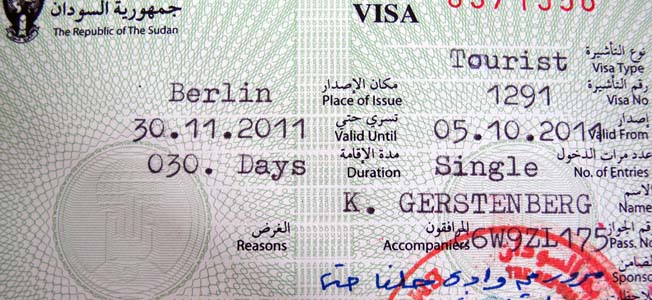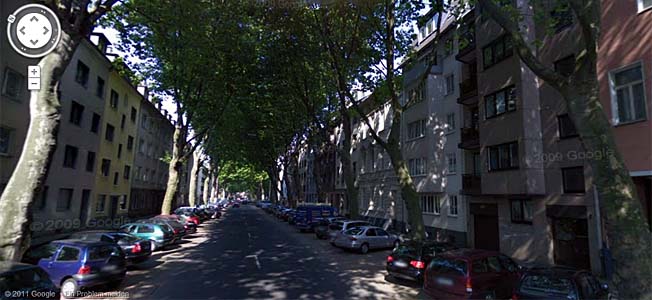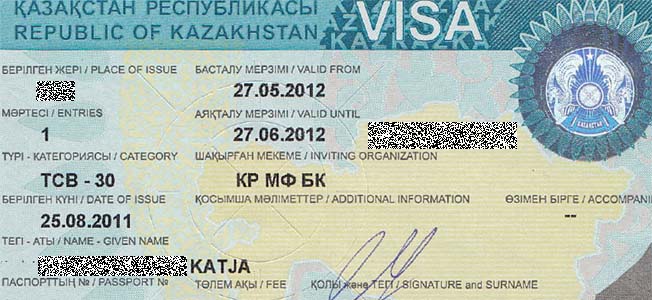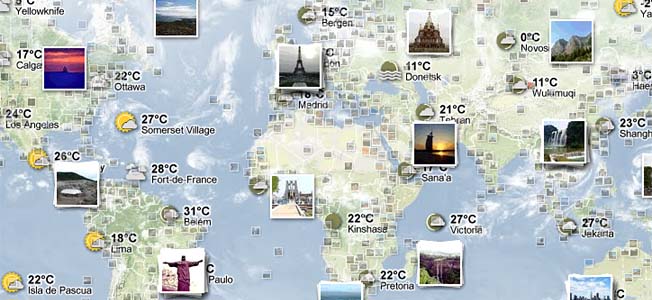Four Weeks to get the Sudanese Visa
Obtaining a visa for Sudan is very time consuming. You need at least three weeks but it can easily take four to six weeks. I used CIBT, a professional visa service, since the Sudanese consulate is located in Berlin which is too far away to personally drop-off my passport.
When I handed-in my passport I also needed to hand-in all booking confirmations and a list of places we are planning to travel to including a description what we will be doing there and where we will be sleeping. When trying to pick-up the passport after three weeks the consulate requested again the booking confirmations which they have received already so we handed them in again. On the second try to pick-up the passport the consulate requested the papers of the car we will be driving into Sudan and the detailed route we will be taking. Since this is not my car but the one of the British tour operator Dragoman I had to call them to receive a copy of the papers. At the third attempt to pick-up the passport the consulate wanted to speak to me in person and actually gave me a 5-10 minute call. They asked me several questions like: Are you really sure that you want to travel to Sudan since it is a dangerous place? What type of car are you driving? Will you ever travel alone in Sudan? Who are the other people you are travelling with and do they have a Sudanese visa? etc. Finally, one day before departure I’ve been told that my visa is ready for pick-up. The visa service CIBT picked-up my passport and since it was not enough time left to send it to my house, they directly send it to the luggage storage at Frankfurt Airport.
In case I did not manage to obtain the Sudan Visa in Germany, the back-up plan was as follows: In Cairo you can go to the German embassy and request a letter on official embassy paper confirming your identity and that your passport is fine for applying a Sudanese visa with. This letter will help you to apply for the Sudanese visa while in Egypt. In Aswan, a town in the south of Egypt, you can apply for a Sudanese visa which only takes 2-3 days to issue. You will need six passport photos and are requested to pay 150 USD.















